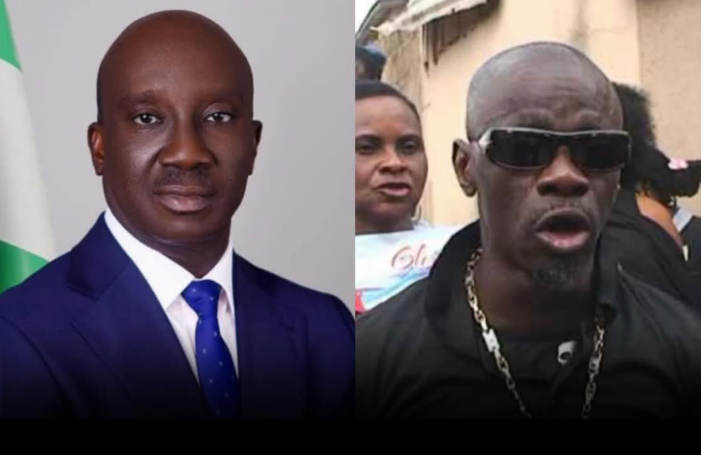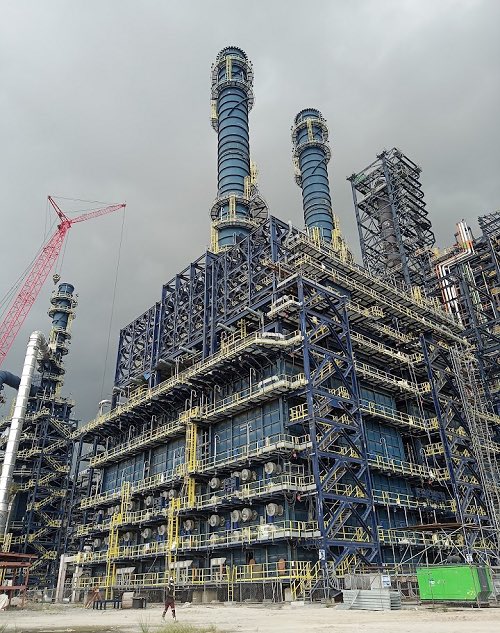
Edo Governor Approves ₦914m Compensation for Demolished APC Youth Leader’s Hotel Amid Court Victory and Pledge to Rebuild

The political landscape of Edo State has once again been thrown into the spotlight following Governor Monday Okpebholo’s approval of a whopping ₦914 million as compensation for the demolition of the hotel belonging to Mr. Tony Adun, popularly known as Kabaka, who is the State Youth Leader of the All Progressives Congress (APC). The decision has drawn widespread attention not only because of the high-profile nature of the beneficiary but also due to the lingering controversy surrounding the original demolition carried out by the administration of former Governor Godwin Obaseki on February 5, 2020.
The hotel in question, T. Latifah Hotel and Suites, was a multi-million-naira structure strategically located in the Ugbor axis of the Government Reserved Area (GRA), Benin City. The property was reduced to rubble five years ago in a move that Obaseki’s government justified at the time as a necessary action because the structure allegedly encroached on government land. The demolition sparked outrage among supporters of the APC youth leader and his political allies, who argued that the act was politically motivated and intended to silence a fierce critic of the then administration.
Following the demolition, Kabaka did not fold his arms. He took the matter to court, challenging the legality of the government’s action. The protracted legal battle tilted in his favor, as the court ruled that the demolition was wrongful and that compensation should be paid to the owner. The judgment became a matter inherited by the new administration led by Governor Okpebholo, who has now taken steps to honor the court’s decision.
Confirming the development, the Edo State Commissioner for Information and Communication, Hon. Paul Ohonbamu, told journalists in Benin City that the approval for the payment was a decision reached during the State Executive Council meeting. According to him, the governor was not only determined to comply with the court’s ruling but also committed to upholding the principles of justice and the rule of law. “As a governor who believes that decisions of the court are to be obeyed, today, EXCO has approved the sum the court asked to be paid. The beneficiary will know that we have a governor who is thoughtful, law-abiding, and believes that justice must be rooted in confidence,” Ohonbamu stated.
This announcement comes just a few months after Tony Kabaka, in a viral video shared on Edo Videos’ Facebook page on June 13, 2025, revealed that Governor Okpebholo had gone a step further by pledging to rebuild the demolished hotel. The statement was made public during the Democracy Day celebration at the State Government House, where Kabaka expressed gratitude to the governor and his political ally, Hon. Dennis Idahosa, for their promise to restore what he described as his “lost hotel.” In the viral video, Kabaka could be seen visibly elated as he told the public, “Your Excellency, I want to thank you for your promise. I want to tell you all what makes my Democracy Day today. What makes my Democracy Day today is His Excellency, Senator Monday Okpebholo, and Hon. Dennis Idahosa, who have promised Kabaka that they will rebuild my hotel this morning. May God bless you all as you join me to celebrate my lost hotel.”
The announcement of both compensation and the promise to rebuild has sparked debates across the state and beyond. While many of Kabaka’s supporters have hailed the development as a long-overdue act of justice, others have questioned the implications for Edo’s strained public finances, particularly at a time when many citizens complain about inadequate infrastructure, rising unemployment, and other pressing economic challenges.
Critics of the move argue that the demolition saga was rooted in the tense political rivalry between Tony Kabaka and former Governor Obaseki, with the hotel serving as a symbolic casualty of the fierce battle between the APC and the Peoples Democratic Party (PDP) in Edo State. They claim that revisiting the issue through compensation and rebuilding not only reopens old wounds but also risks entrenching the perception that political figures can wield undue influence to secure favorable outcomes for personal losses, especially when ordinary citizens rarely receive similar treatment in land disputes or demolitions.
On the other hand, defenders of the governor’s decision insist that Okpebholo had little choice but to comply with the court ruling. By doing so, he has reinforced the principle that no government, past or present, should act with impunity in disregard of the law. They argue that honoring the judgment sets a vital precedent, reminding public officials that actions taken under the guise of governance will ultimately be subjected to judicial scrutiny and accountability. Beyond legal compliance, supporters also highlight that the governor’s pledge to rebuild the hotel is a gesture of reconciliation that could bridge political divides and foster goodwill among key political stakeholders in Edo State ahead of the next electoral cycle.
Kabaka himself remains a polarizing figure in Edo politics. Known for his grassroots influence and his sometimes controversial approach to political mobilization, he has long commanded a loyal following among APC youth supporters. His clash with Obaseki’s government was emblematic of the larger struggle for control within the state’s political space. The demolition of his hotel was perceived by many within the APC as an attempt to break his influence, but his eventual court victory and subsequent compensation have now been framed by his supporters as a vindication of his resilience.
The timing of the compensation approval is equally significant. Coming months into Governor Okpebholo’s tenure, the move could be interpreted as part of his broader strategy to consolidate political power and send a message of fairness to party loyalists. By standing with a key APC youth leader and ensuring that his grievances are not only heard but remedied, Okpebholo may be positioning himself as a unifier capable of healing divisions that have historically undermined the APC’s cohesion in Edo State.
However, questions linger about the practical implications of rebuilding the hotel. While compensation of ₦914 million is already approved, rebuilding the hotel will require additional financial commitments, raising concerns among observers about the potential strain on the state’s budget. Residents are also demanding transparency in how these funds will be allocated and whether such resources could be better directed towards public-oriented projects such as schools, hospitals, roads, and job creation initiatives.
Regardless of the divergent opinions, what remains clear is that the Kabaka hotel saga has come full circle after five years of legal tussles, political drama, and public outcry. For Kabaka, the approval of compensation and the governor’s pledge to rebuild mark a personal triumph and a symbolic restoration of dignity. For Governor Okpebholo, it represents a test of leadership, integrity, and political strategy in a state where every decision is closely watched for its electoral and governance implications.
As Edo people react to the news, the unfolding narrative highlights the intersection of law, politics, and governance in Nigeria. The decision to pay ₦914 million and rebuild a demolished hotel may be viewed differently by different groups, but its impact on the political temperature of Edo State is undeniable. Whether it becomes a rallying point for reconciliation or a source of controversy will depend on how the administration manages the execution of the court’s directive and the expectations of a citizenry eager for progress.

